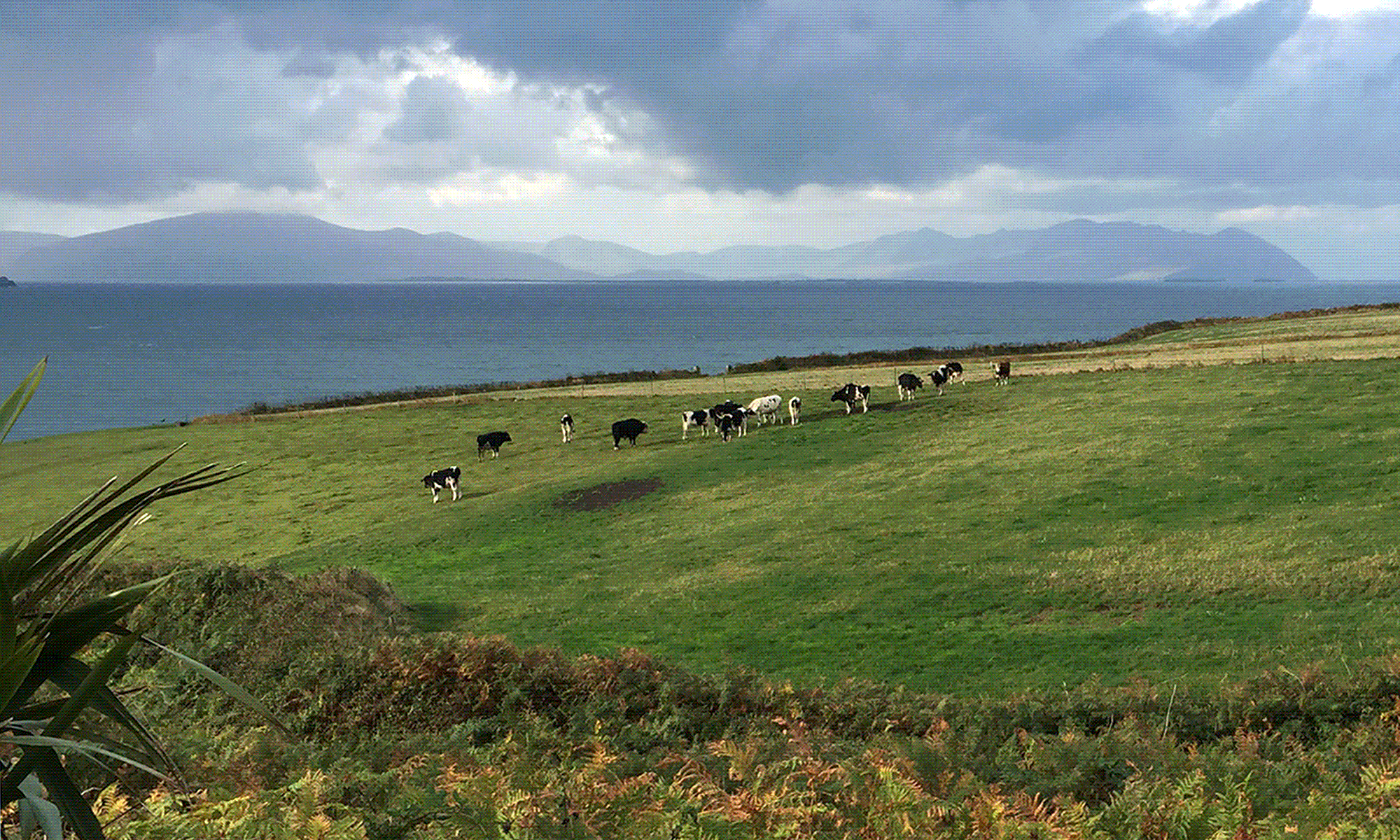Irish Emigrants
Lucy
My mom, Lucy, was born in Tullamore, Co. Offaly, Ireland in 1921 and lived in a small house right next to a church. One wall of her house made up one of the walls of the churchyard. She had a brother, Jack, who was hit by a car when he was young, after which he was in a coma for months. What they said about Jack was that “he was not right” after that. Lucy’s dad was a baker, and her mom was somewhat of an invalid. She had what they called a milk leg. This, it turns out, is lymphedema, and it runs in the family. I have the condition in my left leg, as does one of my cousins. When she was eight years old, Lucy’s dad died, and her mom died when she was twelve. This left her to care for Jack and herself, so she went to work in a sausage factory. Her mom’s four sisters had all emigrated to New York and eventually they sent Lucy passage on a converted Liberty ship and she left Ireland in the late 40s. Later, when she had saved up enough, she sent for Jack. He described something he witnessed on that Liberty ship: “There was a storm, and you could see the two ends of the ship rising up and the middle bowing down.” It’s a wonder they lived through it all.
Joe
My dad, Joe, was born in 1917 in the kitchen of the family farm in Ballyheigue, Co. Kerry, Ireland. His mom, Mary Ann, emigrated to New York sometime after he was born, leaving him to the care of the family. He grew up wild, and would do anything to have a bit of fun. He told me about being very young and hiding in the thatched roof of a house where there was a wake in progress. He and his friend Mikey spit down on the people inside and eventually one of the women below remarked “wid a wah, it musht be raining” in a slow Kerry drawl. He talked slowly all his life, though he eventually did acquire a mild New Jersey accent later on. He fished, and helped with the farm work, and tended lobster pots and had many stories to tell about dangerous adventures at sea in a currach, which is a wood-framed tar-paper-covered canoe they made themselves. I’ve seen the waves on the wild Atlantic coast where he was raised and it’s a wonder that they lived to tell the tale. He also attended a one-room schoolhouse where the fee was a lump of coal a day or maybe some spuds. We have stayed in the Old School which has been restored beautifully on our visits to Ballyheigue and I highly recommend it. He did not come into the farm, and figuring that he’d try his hand at making some money, he went off with a friend to Dublin, then worked the sugar beets in England, and finally emigrated in the late 40s to New Jersey where his mom lived.
Joe and Lucy
At the time they arrived in the New York area, though the Irish made up a sizable portion of the population, Dad told me that when he went looking for work, there were many factories with signs that said NINA, or no Irish need apply. It also meant no Italians need apply. He did find work though and he was never without it again. He had an iron willed work ethic and seeing my somewhat less enthusiastic approach to work he said of me: “he loves his job so much he’d lay down beside it.” Nonetheless, I was also a hard worker even though he called me a “narraback” or narrow back from a lack of hard labor like cutting turf or tending lobster pots. My dad was interested in dancing and sports and meeting up with the new friends he made. Weekends saw him up in The Bronx at what they called Croke Park which was actually Gaelic Park. There, at a dance, he met Lucy. They eventually married, settled in Bergen County, New Jersey and had two children, me and my sister Una, who still lives there. Joe and Lucy are gone many years now. I’ve tried to live up to their expectations and think I have. My heart aches at missing them, but this is the way of the world. We don’t get to stay forever.
